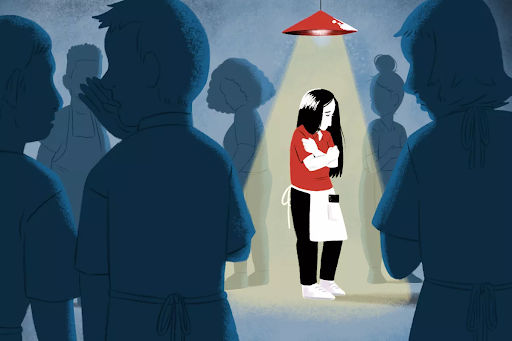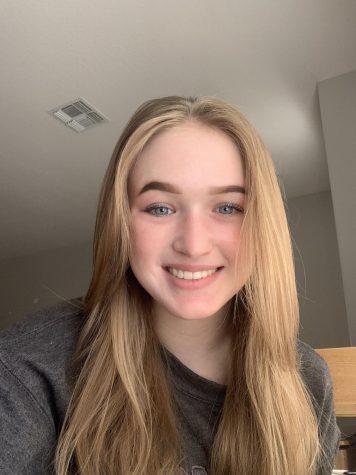Purity Culture is Harmful to Fandom Spaces

March 22, 2021
tw // death threats
No matter what fandom you belong to, there will always be the overarching theme of Purity Culture. It’s a fact of life that, for anyone consuming media, there will always be someone to tell them that their interests are problematic—unless, of course, they meet a rigorous rubric made by people who think that they are experts on purity culture.
The people that perpetuate this idea that all media must be pure and unproblematic are, essentially, bullies dubbed the Purity Police. While they aren’t real authority figures, they might as well be based on the amount they try to police the fandoms that they belong to. They’re exclusively a part of fandom spaces to defend the unproblematic hero while simultaneously hating on the characters who are less than perfect.
Offenses made by the Purity Police can range from callout posts online, to direct messages telling the subject of their ire to kill themselves, all over fictional characters. This is as good a red flag as any.
This hate stems from the fact that they don’t think that other people should enjoy anything remotely problematic. These are the people who will make your fandom experience miserable if they find out that you like a flawed character, much less the villain of the story. It doesn’t matter if you wouldn’t like this character or agree with their ideologies in real life, at least not to the Purity Police; they take any contradicting opinion personally. It doesn’t matter if you like the hero, in addition to liking the villain; apparently, liking two characters who are opposites of the morality spectrum is a hard ‘no’ from them.
In fandom spaces, especially on Twitter and Tumblr, women are often ostracized and ridiculed for their interests. If a woman likes a villain in a piece of media, the Purity Police will instantly be on her to show her the right path, basically implying that she is too naive to make her own choices. They treat women like children who don’t understand media literacy, and invalidate their experiences. The Purity Police aren’t necessarily men, though women are the most targeted, especially in the Young Adult book world which is overrun by morally grey characters.
Age gaps between two characters in a pairing are off-limits, too. In the past, the Purity Police have argued on behalf of fictional women in relationships with older men, claiming that the fictional woman is being taken advantage of by the fictional man. Yes, the Purity Police have defended fictional characters, despite the fact that, usually in these situations, the female character is always the one to know exactly what she’s doing and the one to make her own decisions. But free choice is not something that the Purity Police are well-versed in.
The Purity Police argue that media influences reality. Though this is true in some respect, it’s only in the case of the uneducated and the media illiterate. Children are most susceptible to harmful stereotypes perpetuated by the media; they’re young and impressionable and haven’t had the life experience they need to properly analyze the media they consume. The more they see a certain thing—such as gender roles in kids’ shows—the more they start to think of those ideas. This happens to teenagers, too, regarding social media, but teens usually have a more advanced grasp on media literacy than they did when they were younger.
Of course, this doesn’t mean that the Purity Police aren’t valid in their opinions—they could be survivors of traumatic experiences that influence their beliefs. That isn’t the problem—it’s a strength to want to protect people from what you’ve personally experienced. However, this does not give anyone the right to harass others over fictional preferences, and certainly not to send death threats to people. You can have an opinion, but once you start threatening and harassing others over their differing perspectives, you have officially crossed the line.
Though the Purity Police might have reasons for their beliefs, it does not mean that grown women are too impressionable to have access to problematic media. Adult women are not children—they have more life experience under their belt, which means they have an even better understanding of the intricacies of media literacy, and can actively draw their own conclusions. They don’t need protecting, and it’s an insult to assume that they can’t determine what’s best for themselves. Most importantly, women can separate fiction from reality. Just because they may like a villain or a problematic pairing, does not mean that they condone such actions in real life.
Though they might have started out with good intentions, those who perpetuate the ideals of Purity Culture have gotten out of hand. Fandom spaces are no longer safe; instead, they have become active warzones. This will never change, but what can change is how we interact with that side of fandom. The only way to protect yourself against the full force of misplaced activism is to block users who spew vitriol at others and to distance yourself from the hateful parts of fandom.
Those who remain willfully ignorant of media literacy and free choice will continue to be black clouds over fandom spaces. Purity Culture in fandom is not only detrimental to the foundation of fandom—the ability to maintain a space of acceptance and love for a specific piece of media—but also to the mental health of anyone who doesn’t conform to purity pressure. It’s important to recognize the Purity Police for your own safety and happiness when consuming media.




